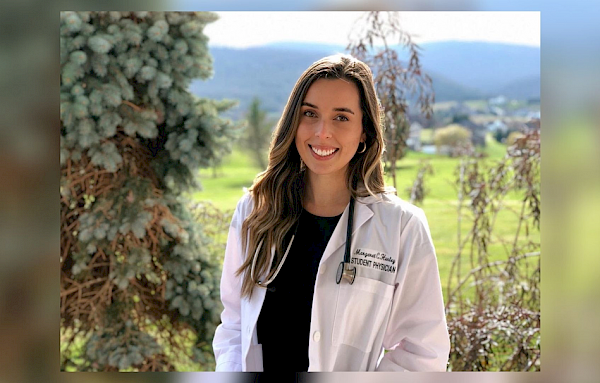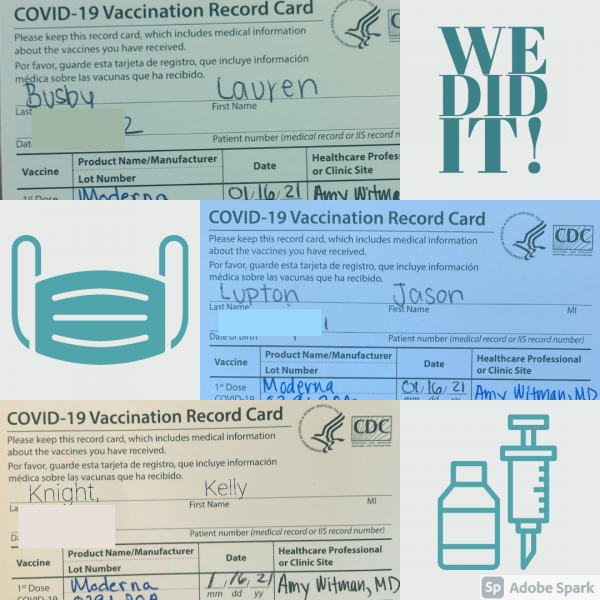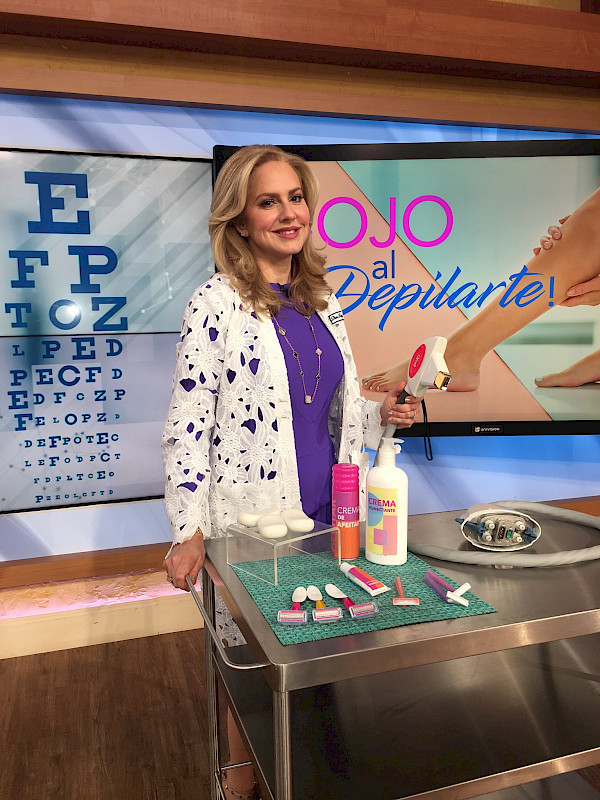
"We have betrayed ourselves and generations to come by taking the most valuable medical leader, the doctor, out of the business of medicine" - Shakeel Ahmed
We agree!
https://www.forbes.com/sites/forbesbusinesscouncil/2022/07/27/why-doctors-make-the-best-healthcare-ceos/?sh=73e6c6023b6b
Yes, balancing the best interests of the medical business with what’s best for patients is possible—and necessary.
https://www.forbes.com/sites/forbesbusinesscouncil/2022/07/27/why-doctors-make-the-best-healthcare-ceos/?sh=73e6c6023b6b

https://www.physicianoutlook.com/articles/dealing-my-insurance-company
Does dealing with insurance ever make you feel sick? Maryanna Barrett feels the same way. Check the article out here.
#insurance #medical #gynecology #mydoqter

Is Making Me Sick
https://www.physicianoutlook.com/articles/dealing-my-insurance-company

https://www.physicianoutlook.com/articles/maggies-musings-do-ing-medical-school
Margaret Hurley, "D.O"-ing her thing! Read her story here!
#osteopathy #medicine #doctor #physician #mydoqter

Becoming a
https://www.physicianoutlook.com/articles/maggies-musings-do-ing-medical-school


Join the school of health professions at St. Bonaventure University and learn about the accomplishments of these lesser-known medical professionals. The Diversity & Inclusion in Public Health course (PHB 302) in the SBU School of Health Professions is hosting a “Hidden Figures in Healthcare” webinar to highlight the unsung diverse contributors to modern healthcare.
3/19/21 @ 1:30
Join us on Zoom. The link is on the Notice Board. For those outside the SBU community, please contact Jeffrey Allen, DHSc, MPA, by email at jallen@sbu.edu.

The nation's first Franciscan university, St. Bonaventure University is a community committed to transforming the lives of our students inside and outside the classroom, inspiring in them a lifelong commitment to service and citizenship. In 2020, St. Bona
http://jallen@sbu.edu

Check out this article on The Reverend Doctor Illueca, a strong positive mentor and role model. Link Below!
https://www.physicianoutlook.com/articles/reverend-doctor-illueca
#physician #medicalstudent #Covid-19

I was a young scared medical student suffering from constant self-doubt when I first met Dr. Marta Illueca.
https://www.physicianoutlook.com/articles/reverend-doctor-illueca


Let's Talk Sh!t!
I learned very little in medical school and residency about the gut microbiome, but the more I read, the more I am convinced that the future of MANY health conditions as we know it lies in the gut.
Join me in supporting Dr. Sabine Hazan and the other speakers at this FABULOUS virtual conference (in person if you are anywhere near Malibu California)
on March 20, 2021.
FREE TO REGISTER (although donations appreciated as they go DIRECTLY TO FUND microbiome-related research and FDA-Approved clinical trials.
https://malibumicrobiomemeeting.com/

Physicians, government, and industry share the latest in microbiome research, discoveries, and news.
https://malibumicrobiomemeeting.com/

Read this blog and make an official comment against kickbacks for Optum, CVS and other PBM and hospital tied GPO that PREVENT patients and doctors from securing the BEST drugs, devices, and medical supplies and cost Americans $200 billion per year. That's $$ that is used to lobby for independent practice for non-physician providers.
Public comment closes on Feb 16. There are suggestions in this blog for comments to make and a link to make the comments.
Physicians cannot obtain lifesaving drugs or solutions—like epinephrine, saline, or albuterol—for their patients. Over 200 drugs on the shortage list.
Shortages....Here in America. Hurting patients and especially the indigent. https://free2care.org/free2care-urges-you-to-stand-against-costly-killing-kickbacks/

We got our COVID vaccines! The office that inoculates together... Very grateful to Dr Amy Witman/PrivateMD and her staff who spent their Saturday vaccinating the healthcare workers in our medical building. Glad to report just a sore arm for all of us!


Excited to be partnering with MyDoqter and to be contributing to the Procial feed. Now, more than ever, it is SO important for physicians to be able to communicate information amongst each other and directly to patients in a forum that is professional, promotes mutual respect, and shares accurate medical information. If you aren't already done so, please claim and update your MyDoqter physician profile.
If you haven't subscribed to Physician Outlook, please take advantage now using "MyDoqter" as a subscription coupon (get an entire year of print magazines and full digital access to the website for $60) www.physicianoutlook.com/subscribe

Physician Outlook Magazine is a print and online magazine that provides a forum that is simultaneously informative, entertaining and educational.
http://www.physicianoutlook.com/subscribe

HOW TO BEST PREPARE YOUR CHILD WITH ASTHMA OR ALLERGIES FOR SCHOOL
It’s that time of year again! Summer vacation is over and the kids are getting ready to go back to school. This Summer may have been met with some allergy challenges because it has been one of the hottest Summers on record. You may be worried about how your child with allergies and asthma may fare during the school year. Well, here are my five top tips to get your child with asthma or allergies ready for the school year.
1) Make sure the school is prepared to take care of your child in case of an emergency.
This is important for all children but specifically for children with food allergy and asthma. Children with food allergy must always have an adult ready to administer an epinephrine injector, and children with asthma must have access to an albuterol inhaler. Older children and high school children may know how to administer their medication. However, depending on the school’s policy and what is allowed, they may be restricted to seeing the school nurse or having the teacher administer the medications needed. It is important to feel comfortable with the school’s plan of action in case your child’s condition is to worsen. Have you discussed the signs and symptoms of when your child may be having a food allergy reaction or asthma attack with their teachers or school nurse? Does the school provide this type of training to their staff? These are all important questions to find out. If not, find out if there are plans to do so. Remember, it only takes one person to start change.
2) Has your child recently been evaluated by their Allergist.
An updated visit to your child’s allergist is always important, even with the most stable conditions. If your child is following up with their Allergist as directed, then you probably don’t have anything to worry about. If it has been a year or more, it is important that you schedule a follow-up soon. Over a year, many things can change. Your child’s medical condition or medical needs may have changed. Your child is growing and weight changes may require a change in dosing. Also, you can find out if new medications or treatments may be available. In addition, refills on expired medications may be needed. Lastly, an updated action plan on how to treat your child’s condition may be needed.
3) Address how medications will be given
Going back to school may mean a new schedule for your child and possibly yourself. Most allergy and asthma medications are given no more than twice a day. However, it can be difficult to coordinate the administration of a mid-day or late afternoon medication. Working with the school and your Allergist to figure out the best plan to have your child’s medication delivered correctly and timely with little interference to their day can be achieved.
In addition, a teenage child who has been given the responsibility of taking their own medications may need to be checked on periodically. It’s not unusual for me to see a teenager with exacerbated symptoms, all because they forgot a few too many times to take their medication and an upset parent sitting by their side. If you find that your child’s symptoms seem to be worsening or if you are not refilling their meds as expected, you may want to check on if they are taking their medications.
4)Address how your child’s condition may be affected by extracurricular and sports activity
A child with asthma and/or allergies may need special attention when it comes to them playing a sport or participating in extracurricular activities. Will they play outside but they have a severe pollen allergy? Will their asthma symptoms start once they start running? Or do you think your child’s care may need to be optimized so they can do their best? These are all questions that may be playing in your head. Addressing your concerns with your allergist is the first step. There are many ways to keep your child’s symptoms under control, including pretreating with medications prior to activities.
Furthermore, Extracurricular activities such as pottery making, painting, cooking, horticulture, etc, may have your child contacting possible allergens that may need to be addressed. If your child finds themselves with hives or a rash after an activity, testing and avoidance may be warranted.
5)Discuss your child’s care with caregivers
Coordinating your child’s supervision and safety to and from school may cause for other people to care for your child. Whether it is a friend’s mom carpooling the children to school, tutors, babysitters or nannies, it is important that all caregivers are aware of your child’s medical condition and have a plan of action. If you don’t have a plan of action, one may be obtained by your Allergist. Having one in place, may be particularly important in small children who may have difficulty expressing what they are feeling. Discussing the plan of action with your child’s caregiver will also help to give you insight on how comfortable your child’s caretaker is in implementing the action plan. If your child’s caregiver is not comfortable in recognizing signs and symptoms of your child’s medical problem or not comfortable in administering emergent medication, then secondary measures may need to be put in place, such as pre-prepared foods in a child with food allergy to decrease the likelihood of an accidental exposure, or maybe even a new caregiver. Most importantly, they should know how to contact you in case of an emergency.


A Colorectal Surgeon is a Board Certified doctor who treats and diagnoses conditions related to the small and large intestines as well as the anus and rectal region. These surgeons have expertise in not only general surgery but have also undergone advanced training in the medical and surgical management of diseases of the intestinal tract, colon, and rectum/anus, and perianal area. Surgeons within this specialty have training in open abdominal surgeries as well as in minimally invasive procedures such as endoscopy or laparoscopy.
Typically, your Primary Doctor or your Gastroenterologist will refer you to the Colorectal Surgeon for evaluation of a specific condition or treatment of a given diagnosis.


Don't miss Dr. Megan Babb's monthly Sekhmet column in Physician Outlook Magazine. The Unyielding: COVID-19 for Physician Women on the Front Line.
https://www.physicianoutlook.com/articles/sekhmet-712-unyielding
#physicianoutlook #independentphysician #COVID19 #frontlinephysicians #sekhmet #womeninmedicine #medicine #doctor #healthcare #medicalschool #covid #doctorsofinstagram #physician #womenempowerment #medlife #health #womensupportingwomen #womeninscience #scrublife #medical #femaledoctor #residency #doctorlife #doctors


Platelet-rich plasma (PRP) therapy is a form of hair loss treatment that can harness and amplify the body’s unique natural growth factors to support hair growth.
The growth factors restore favorable conditions by:
1. Stimulating the proliferation of hair stem cells
2. Improving circulation to the hair follicles by stimulating the formation of new blood vessels around the hair follicles
3. Extending the growth phase cycle of the hair
Medical studies demonstrate PRP treatment:
• Increases hair count
• Increases hair density
• Increases individual hair shaft thickness
• Slows further hair thinning
Ask your dermatologist today if PRP is right for you!

Remembering my dear #mentor and #friend, Dr. Richard E. Fitzpatrick, well-renowned for his pioneering of many cosmetic dermatologic procedures, including #Laser #Skin #Resurfacing. But his greatest legacy truly was setting an example for us to follow of the virtues of a good physician: medical curiosity, compassion and humbleness.
(With my friends and colleagues, #CoolSculpting Specialists Carla Homez and Maria Ferrer.) #ASLMS 2014



MOVEMBER MAY BE OVER, but @ YOU & WEE Urologic Surgery and Wellness we Care about Men's (and Women's) Health ALL YEAR LONG!! Check OUT our VIDEO BLOG on Erectile Dysfunction which is a common problem in 50% of Men over the age of 40. THANKFULLY There are Many Treatment Options that can Restore Intimacy and Relationships, and our Vlog Discusses them all!!
#ErectileDysfunction #PenileImplant #IPP #Rigidity #Peyronies #Diabetes #penileprosthesis #inflatablepenileprosthesis #inflatablepenileimplant #minimallyinvasive #urology #doctor #surgeons #medicine #menshealth #sexualhealth #physician #medicaleducation #treatment #qualityoflife #lidokey #tampa #orlando #sarasota #centralflorida #siestakey #thevillages #saintpetersburg #prostatecancer #naples
https://youtu.be/WxQzrdrsFe4

This is an Instruction and Informational video on HOW TO TREAT Erectile Dysfunction and the SEVEN Most Common Treatment Options. We use a variety of Diagrams...
https://youtu.be/WxQzrdrsFe4

BLACK FRIDAY BLOG: Erectile Dysfunction is a common problem in 50% of Men over the age of 40. This Can Destroy Intimacy and Relationships. THANKFULLY There are Many Treatment Options and our Blog Discusses them all!!
https://www.mhurologytriad.org/posts/…/erectile-dysfunction/
#ErectileDysfunction #PenileImplant #IPP #Rigidity #Peyronies #Diabetes #penileprosthesis #inflatablepenileprosthesis #inflatablepenileimplant #minimallyinvasive #urology #doctor #surgeons #medicine #menshealth #sexualhealth #physician #medicaleducation #treatment #qualityoflife #lidokey #tampa #orlando #sarasota #centralflorida #siestakey #thevillages #saintpetersburg #prostatecancer #naples


#Medicinal #Marihuana can be helpful in various medical conditions. Of note, its use may trigger #Schizophrenia and #Psychosis (a detachment from reality) in patients who have a predisposition. Ask your #PCP or #Psychiatrist if medical marihuana is a safe treatment for you.


#LOVE educating our patients on all modalities for #HairReduction and #HairRemoval: from home #Depilation devices and creams, to safe and effective medical grade #Light sources and #Laser devices.


Today I want to share important information about #NARCOLEPSY. This is a medical condition characterized by frequent daytime sleepiness or drowsiness. It can lead to serious social and physical consequences for the patient, such as not being able to stay awake in class or falling asleep while driving. If you or a loved one may be suffering for narcolepsy, please visit your Internal Medicine physician for proper evaluation and management. They can prescribe selective stimulants and medications known as SSRIs that can help manage this condition.


HOW TO Treat Erectile Dysfunction: About 50% of Men over the age of 40 may have symptoms of ED. Men with Prior Pelvic Surgery, Smokers, Diabetes, and Peyronies disease are at higher risk to fail medical therapy.
#ErectileDysfunction #PenileImplant #rigidity #Peyronies #Smokers #Diabetes #penileprosthesis #inflatablepenileprosthesis #inflatablepenileimplant #minimallyinvasive #urology #doctor #surgeons #medicine #menshealth #sexualhealth #physician #medicaleducation #treatment #qualityoflife #brandon #tampa #orlando #sarasota #centralflorida #siestakey #thevillages #saintpetersburg #prostatecancer #impotence
https://youtu.be/kGGj4ulSDBE

Who knew we had to consider so many factors when searching for the cause of erectile dysfunction?! Have you been searching for a solution to this issue? This...
https://youtu.be/kGGj4ulSDBE

HOW TO Cure Erectile Dysfunction: Inflatable Penile Implants. About 50% of Men over the age of 40 may have symptoms of ED.
Men with Prior Pelvic Surgery, Smokers, Diabetes, and Peyronies disease are at higher risk to fail medical therapy.
https://youtu.be/MTxKYlC8Zz4

This is an Instruction and Informational video on HOW TO Cure Erectile Dysfunction with an Inflatable Penile Implant (Penile Prosthesis) for Erectile Dysfunc...
https://youtu.be/MTxKYlC8Zz4

PRECISION MEDICINE in PSYCHIATRY could help tailor specific medical treatments to specific patient subsets based on their UNIQUE genetic BIOMARKERS. This could mean that patients with various types of DEPRESSION could now receive the MOST EFFECTIVE MEDICATION for them, based on these findings and their specific biomarkers which can influence how they respond to medications.


Researchers at Harvard Medical School have identified Social Connection as the strongest protective factor against Depression. Stay safe, stay healthy and stay connected to your loved ones!
